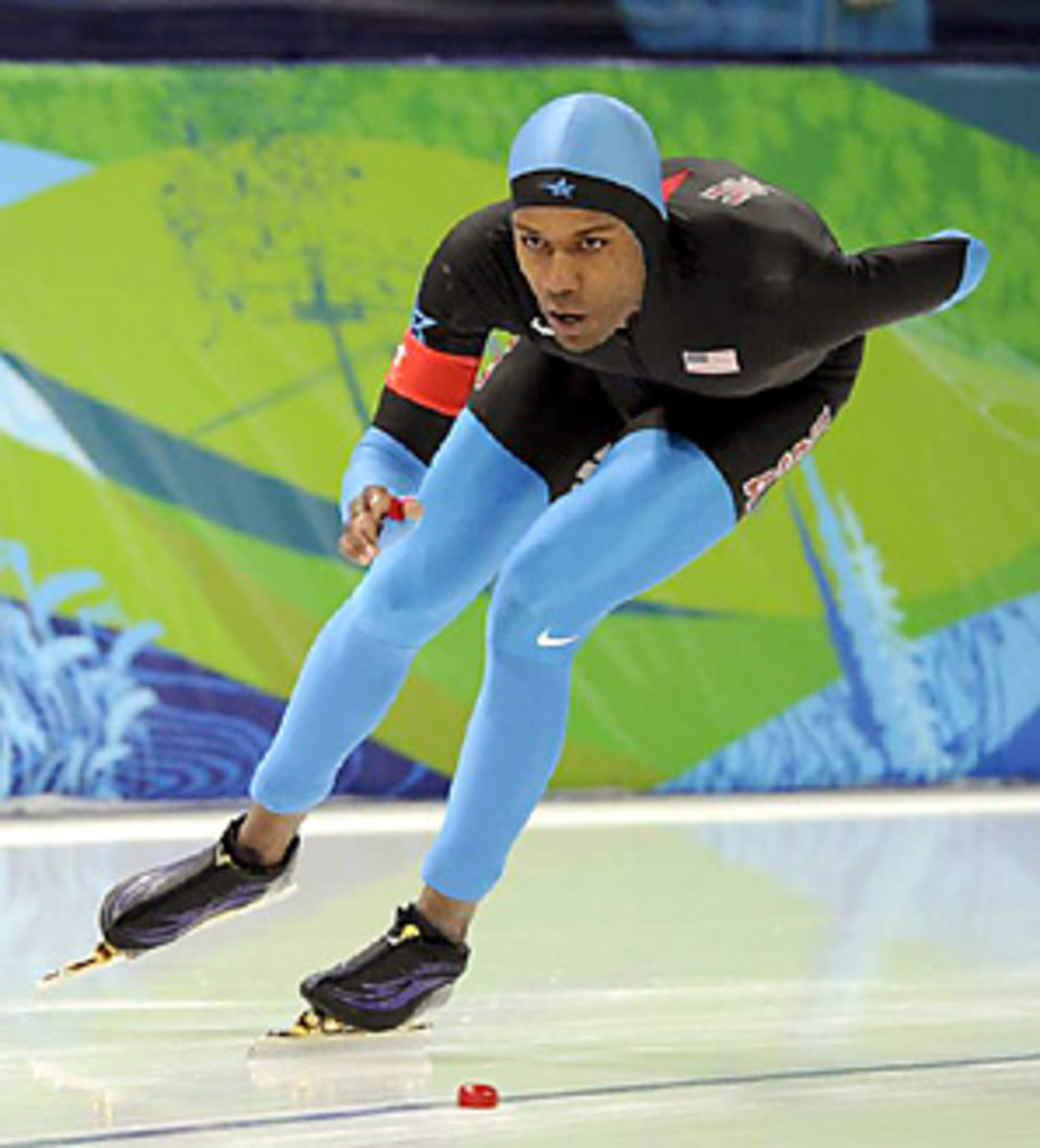Davis goes for gold tonight as the 1,000-meter favorite
RICHMOND, British Columbia -- When it comes to the Winter Olympics and sports in which athletes strap on skates, there's the Double Salchow, the Triple Axel and the Full Heiden.
U.S. speedskater Shani Davis was originally going to go for the Full Heiden by skating all five individual distances. Then, several weeks before the Games, he chose to give the 10,000 meters a miss. And after Monday's fiasco at the Olympic Oval, where malfunctioning resurfacing machines briefly left ridge-like striations on the ice, Davis decided the prudent thing to do was to bail on his second skate of the two-part 500.
The upshot: Davis' Olympics will end up consisting of three-and-a-half events. And the only two left are the ones in which he's a heavy favorite to bag the gold -- the 1,000 and 1,500.
The first of those goes off tonight at 7 p.m. Eastern time.
The 27-year-old Chicago native was perfect at the distance during the fall portion of the World Cup season. He's the defending Olympic gold-medalist in the 1,000 and set the world record last March. Though he's far from the fastest off the start, three things more than compensate:
• Supreme confidence in the turns. It's the result of years of skating short-track, which even in the midst of the long-track season Davis still mixes into his training regimen. To cover 1,000 meters on a 400-meter oval, a long-track skater has to negotiate five turns, and at each Davis dips into a reservoir of cornering experience that few others have.
• Great rhythm on the straightaways. Once he comes out of those turns, Davis is a blade. "Right now, he's doing it on the straights," says former Olympian Bart Veldkamp, the multiple gold medalist from the Netherlands. "Over 15 meters [of straightaway], he'll gain four meters [on an opponent]."
• The Davis mystique. It's largely the product of the first two, and of Davis doing to every other middle-distance sprinter of late what he did to Stephen Colbert in their January televised showdown -- smoke them like a Virginia ham (to borrow Colbert's phrase).
"It's basically a controlled sprint," says U.S. coach Ryan Shimabukuro of the 1,000. "Execute a fast enough opener, but maintain your speed over that last lap."
Or as Denny Morrison, Canada's best medal hope, puts it: "If this were track and field, the 1,000 would be the 400 meters."
Hence Shimabukuro and Davis worked on "shifting gears" at training yesterday afternoon -- "really nailing the small technical things," the coach says, "that you need to execute in the 1,000."
Tonight, watch for 500-meter specialists like Finland's Mika Poutala and Japan's Keiichiro Nagashima to push out early and fade, hoping to hang on with times good enough to land them in the money.
Morrison's approach will be more sustained, like Davis'; for motivation, he'll have the cheers of the home crowd.
As for Korea's Lee Kyou-hyuk, he'll be fired by the knowledge that in this, his fifth Olympics, he still hasn't won a medal -- teammate Mo Tae Bum and two Japanese shut him out in Monday's 500, where he was a favorite. "Deep down I'd had a gut feeling that Mo could be the one to fly under the radar," says Shimabukuro, betraying the widely-shared belief around the Richmond Oval that Mo will pose Davis his biggest challenge.
But it's Davis who has the most on the line. He finished 12th in last Saturday's 5,000. Then, on Monday, he placed 18th in the first of two heats, before the Olympia machines went all kerblooey and organizers had to send an S.O.S. to Calgary for a back-up Zamboni. With no chance to medal, he withdrew rather than risk injury.
Nevertheless, the middle-distance sprints fall right into Davis' sweet spot. "Ever since he was young, Shani has had the natural ability to blend top speed and endurance," says Shimabukuro. "They complement each other in the 1,000."






